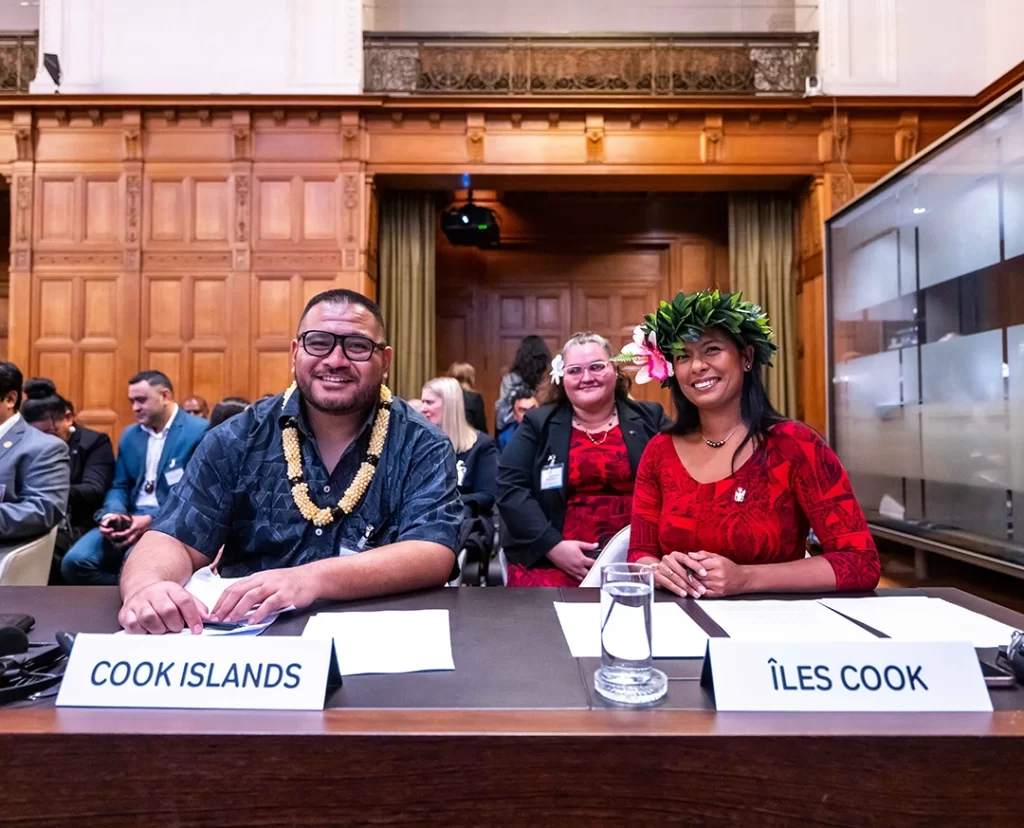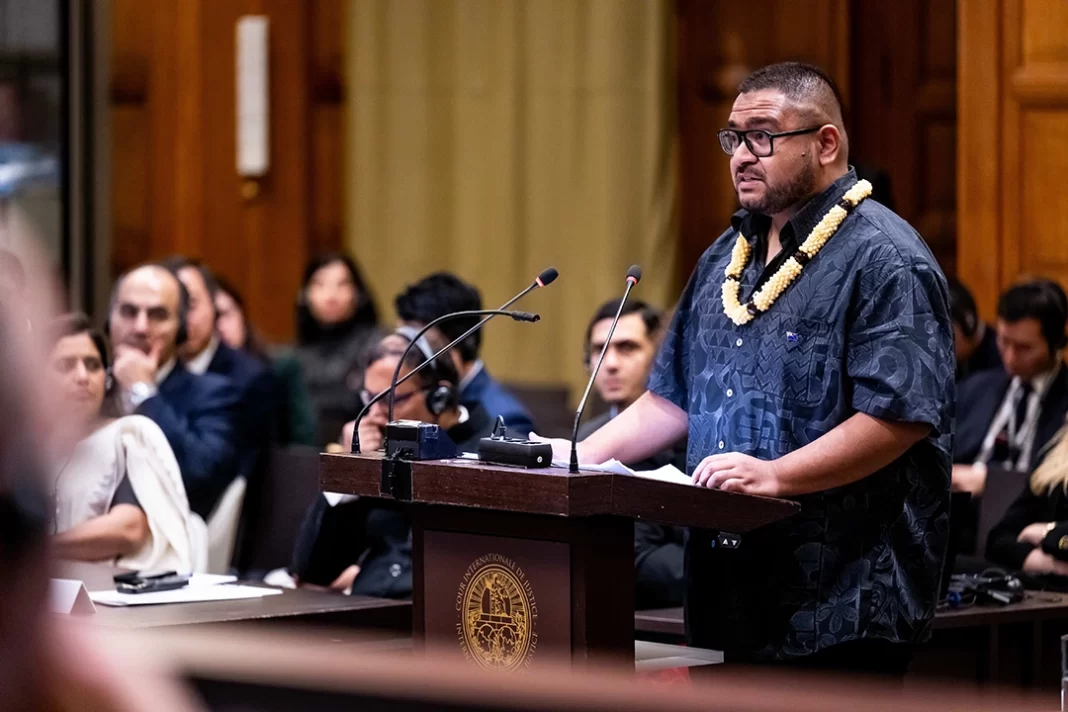The Cook Islands delivered a powerful message to the International Court of Justice (ICJ) with University of Auckland senior law lecturer Fuimaono Dylan Asafo acting as external legal counsel.
The Cook Islands made history with its first-ever appearance before the Court for the oral hearings regarding the request for an advisory opinion on the Obligations of States in respect of climate change.
It joined over 100 other States and international organisations participating in the written and oral proceedings – the largest number of participants ever for an ICJ proceeding.
The proceedings represent a critical step in addressing the climate crisis and the unique challenges faced by small island developing States (SIDS), including Pacific Island States, on the front lines of its impacts.

The Cook Islands’ delegation was led by the Ministry of Foreign Affairs and Immigration (MFAI) Director of the Treaties, Multilaterals and Oceans Division, Ms. Sandrina Thondoo, including Foreign Service Officer Ms. Peka Fisher and Fuimaono as External Counsel.
In delivering arguments before the Court, Fuimaono stated:
“[I]t is no secret that our international legal system – as well as our interconnected economic, financial and political systems – are deeply implicated in the climate crisis we face today. For many decades, major emitters have been able to rely on these systems, and the institutions and fora they contain, like the annual COPs, to expand fossil fuel industries, increase their emissions and evade responsibility for the significant harms their emissions have caused. In doing so, they have been able to maintain and grow the broader systems of domination that drive the climate crisis today – including imperialism, colonialism, racial capitalism, heteropatriarchy and ableism.”
“Understanding this grim reality of our international systems means understanding that to truly guarantee cessation and non-repetition [of the unlawful conduct], States must dismantle these systems and imagine and build new ones capable of allowing everyone to live lives of joy and dignity, so that they are able to determine their own futures and destinies.”
In conclusion, Fuimaono argued:
“[T]he General Assembly’s Request for an advisory opinion offers the Court the most precious opportunity to interpret and advise on existing international law in its best possible light in order to empower all States and peoples to work together to decolonize international law and build a more equitable and just world for us all.”
The hearings, began on 2 December and will continue until the end of this week on 13 December, with New Zealand and Pacific Island States, including Samoa, Tonga and Tuvalu, scheduled to deliver their statements.
Netherlands, Thursday, 5 December 2024.
Media contact: [email protected]





